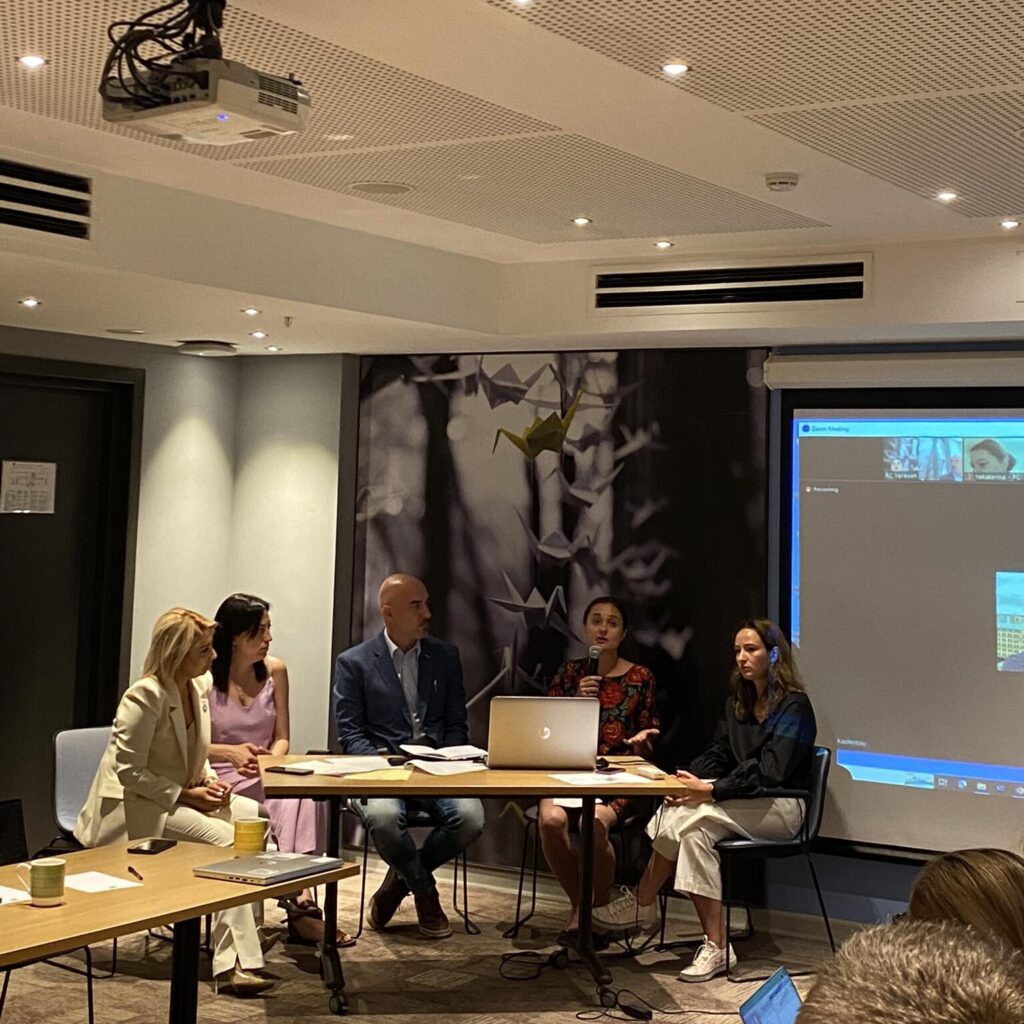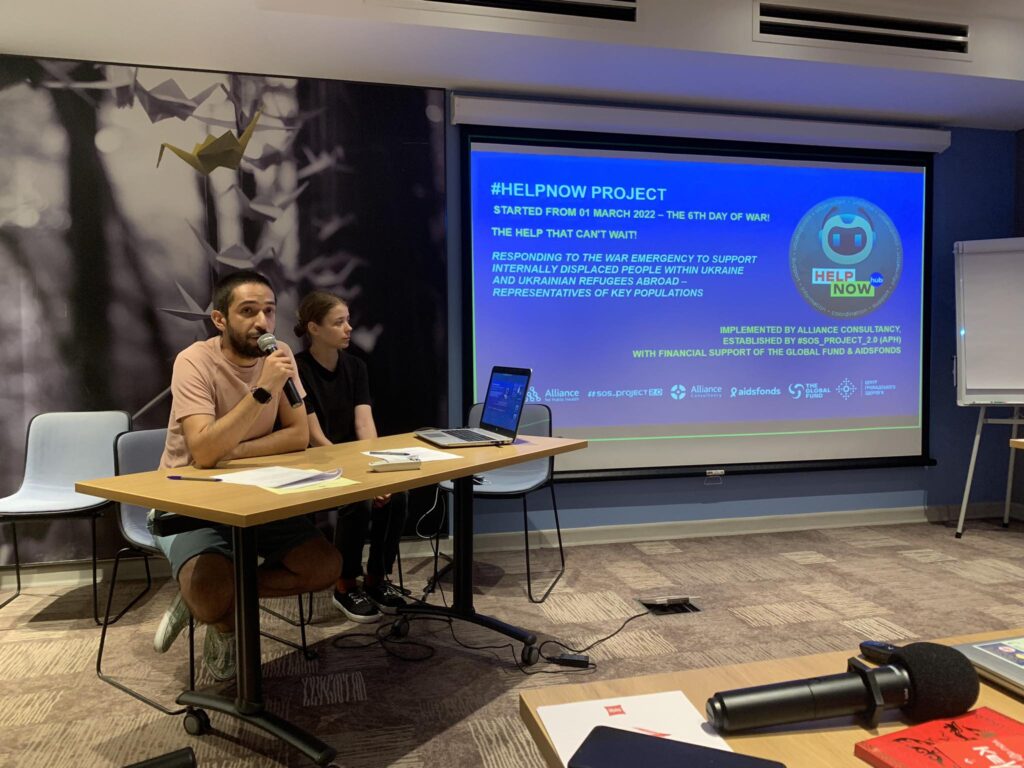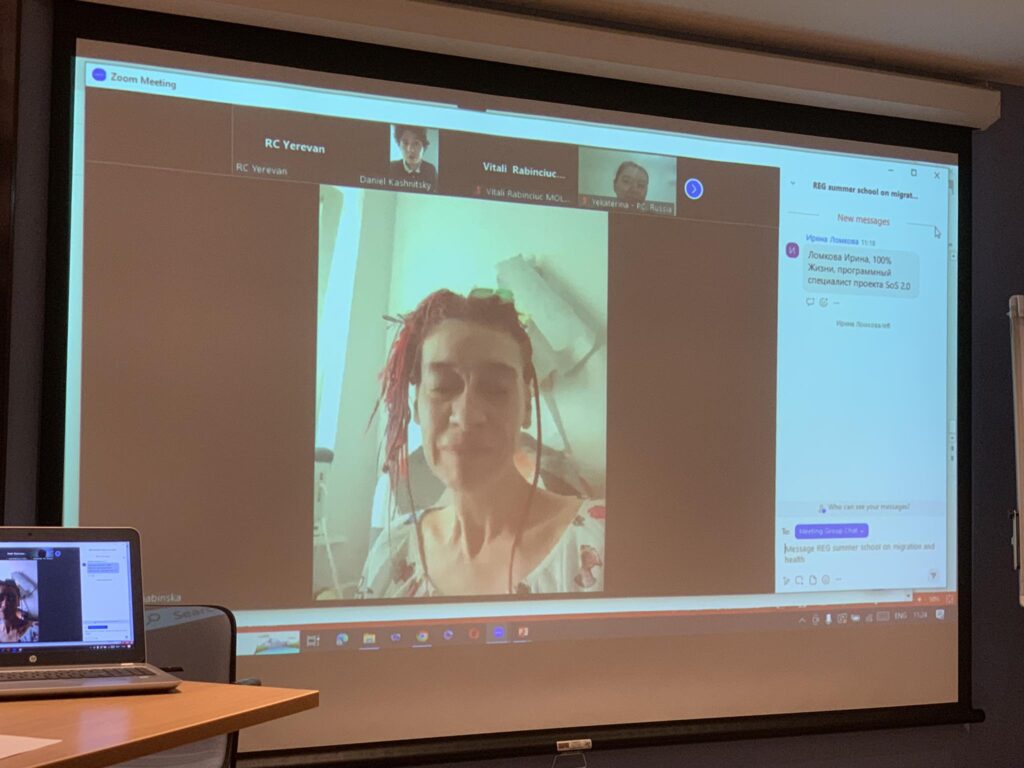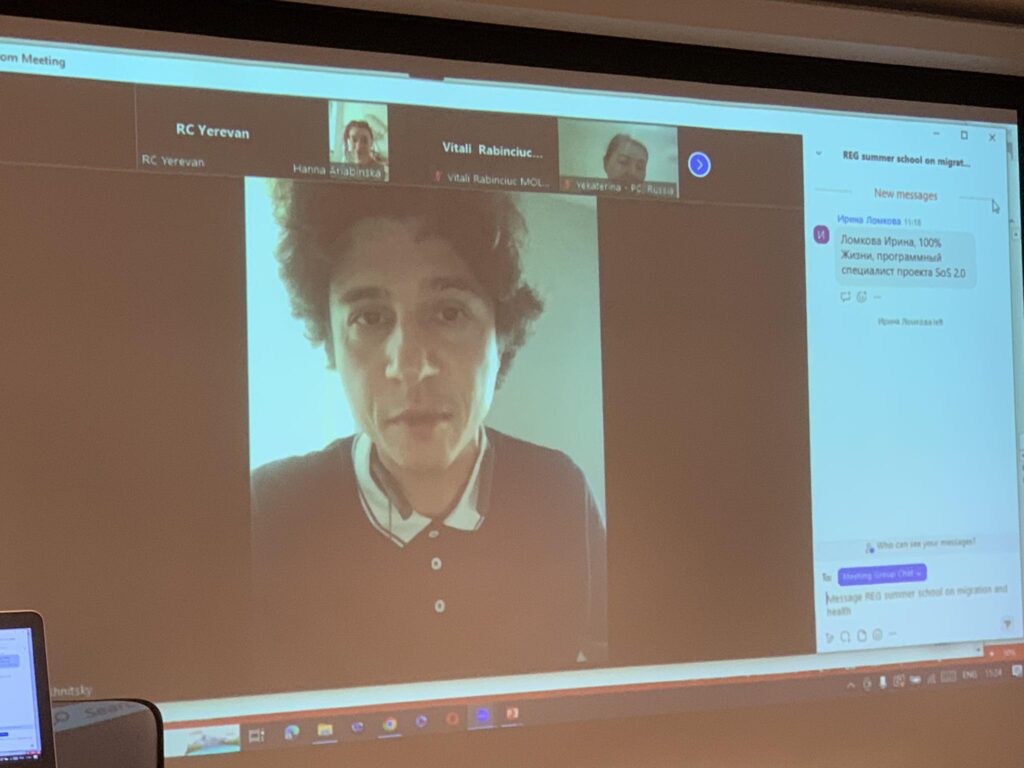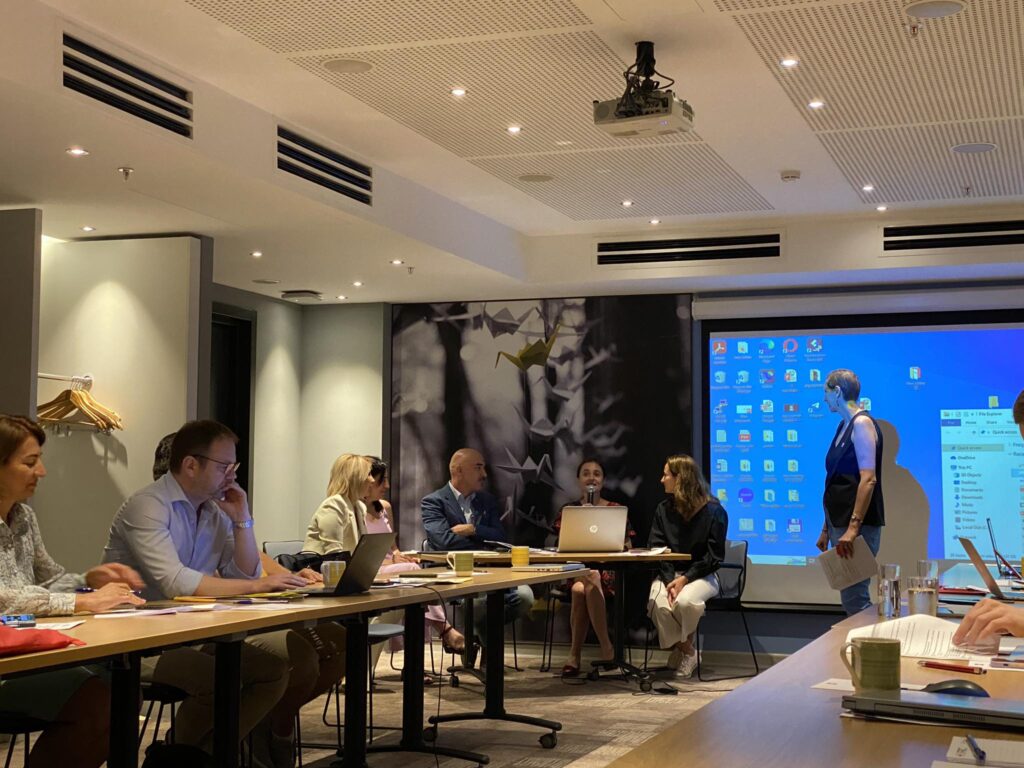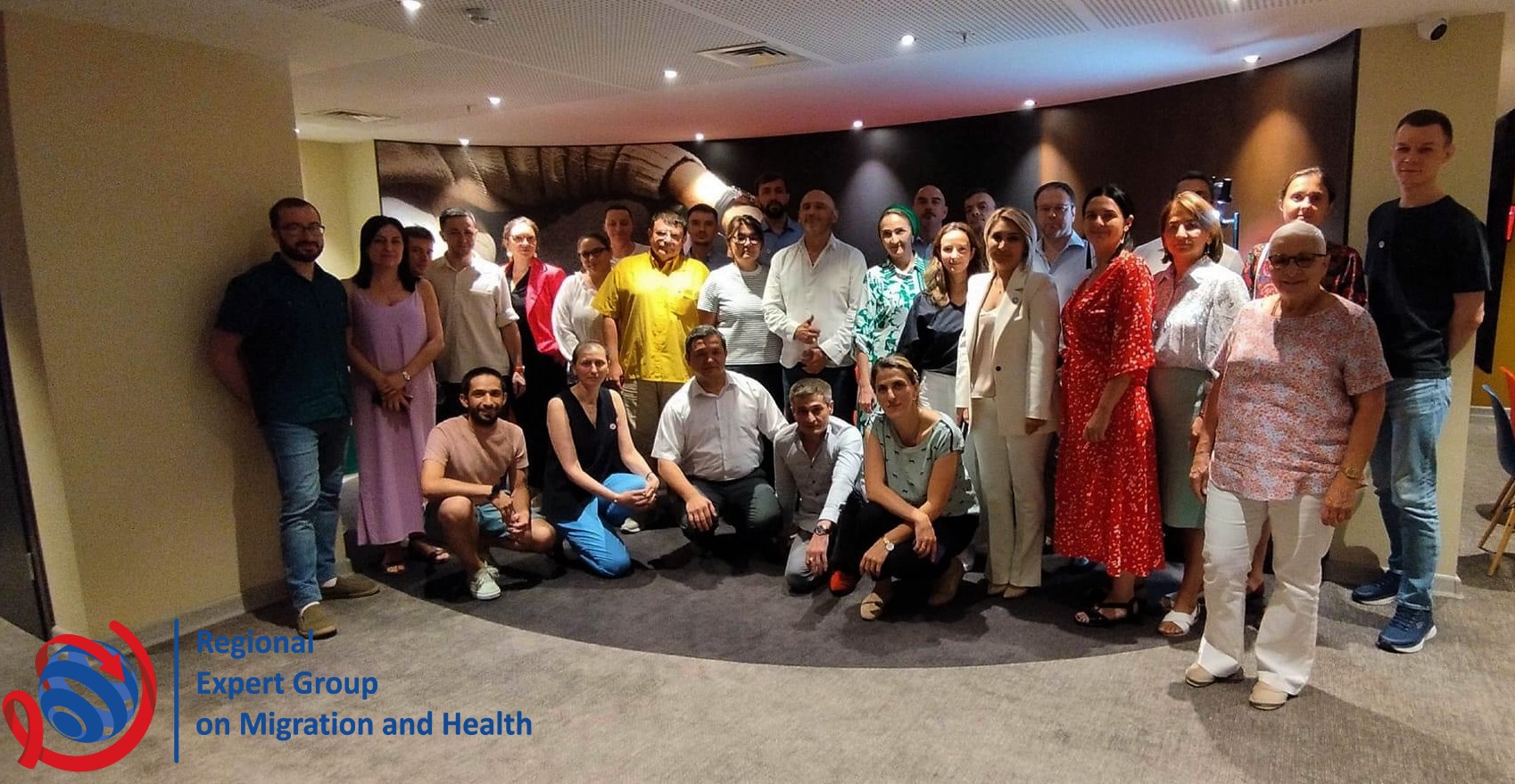On August 21-22, Yerevan hosted the Summer School on Health and Migration organized by the Regional Expert Group (REG) on Migrants’ Health within the framework of the #SoS 2.0 project. The two-day event brought together representatives from different countries of the EECA region to discuss topical issues related to the health of migrants and refugees.
The EECA region has faced many challenges, especially in light of migration flows caused by a variety of conflicts. In particular, the war initiated by Russia against Ukraine has created large migration flows requiring intensive efforts to provide health care and prevent HIV infection among migrants.
The main challenge for the expert community is the need for a coordinated response to migration trends in the EECA region. This includes assessment of migrants’ health needs, including HIV, tuberculosis and other socially significant diseases.
The aim of the event was to discuss current demographic and sociological research methods in the EECA region. These methods are aimed at understanding the size of key groups in migration and their needs for health services, as well as legal and social support.
Important issues on the agenda covered demographic and sociological research methods, as well as migrants’ needs for health, legal and social support services. Special attention was paid to migration processes and access to services in the countries of Central Asia and the Caucasus.
The event covered topics such as social determinants of migrants’ and refugees’ well-being, new trends in support for migrants and refugees, and best practices in health advocacy and monitoring.
Organizing population size estimates for key populations, using qualitative methods to understand health barriers, and adapting the HIV care package for migrants and refugees were all topics of discussion aimed at improving approaches to health care for these groups.
The Summer School on Health and Migration in the EECA Region was an event that emphasized the importance of sharing experience and bringing experts together to develop the best approaches to migrant and refugee health care.
